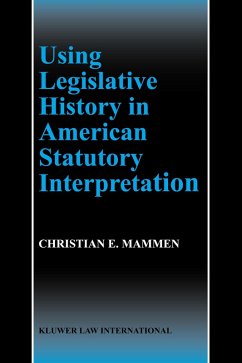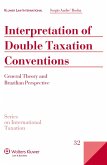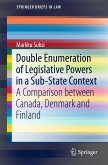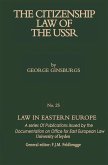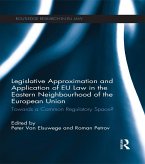Justice Scalia has derided the use of legislative history as "e;the equivalent of entering a crowded cocktail party and looking over the heads of the guests for one's fiends. In Using Legislative History in American History Interpretation, Dr. Christian E. Mammen defends the use of legislative history and argues against the traditional link between legislative history and legislative intentions. Instead, he endorses the use of legislative history for its ability to provide expert analysis or information about the statutory context. Additionally, the author addresses the judicial practice of using legislative history to discover what courts have called "e;legislative intention."e;Using Legislative History in American History Interpretation also provides a detailed historical exploration of courts use of legislative history. For example: One of the first reported instances of the Supreme Court relying on legislative history occurred in 1825, when the Court used it as evidence of expert opinion in deciding thatthe slave trade was not prohibited by international law; The Supreme Court has relied upon legislative history to learn the purposes of copyright statutes for almost 175 years; Seventeenth-century British judge Lord Nottingham relied on his own memory as legislative history: he wrote the law; and then when asked to interpret it, he said he ought to know what it meant- he wrote it.Dr. Christian E. Mammen holds a D. Phil. in law from Oxford University and a J. D. from Cornell Law School. He currently practices intellectual property litigation in San Francisco with the firm of Heller Ehnnan White & McAulitte LLP.
Dieser Download kann aus rechtlichen Gründen nur mit Rechnungsadresse in A, B, BG, CY, CZ, D, DK, EW, E, FIN, F, GR, HR, H, IRL, I, LT, L, LR, M, NL, PL, P, R, S, SLO, SK ausgeliefert werden.

